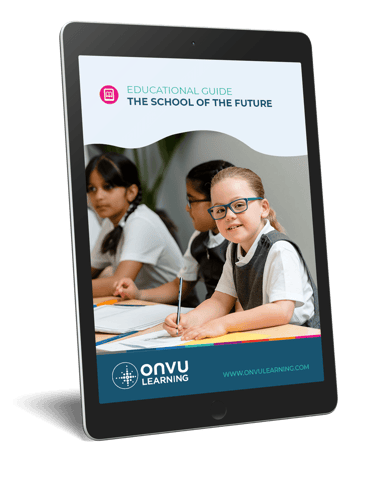- Blogs
- 2 Minute Read


It was great to hear Education Secretary Damian Hind’s speech over the summer about the great potential of technology to help schools, teachers and students. It’s time for educators to see the huge benefits of the education technology revolution.
He hit the nail on the head when he talked about ‘focused and sustainable’ solutions – my 14 years in the education technology industry has made it clear to me that success starts with a strong understanding of the needs of teachers and learners rather than ‘shiny new technology’. Hard questions need to be welcomed and answered and aspects such as set-up time, teacher training, engagement of staff and frequency of use prioritised.
It was also excellent to both see areas outside of direct classroom teaching clearly identified as opportunities for technology. As Caroline Wright, BESA Director General said when responding to the speech “I am delighted that the DfE’s plans recognise that EdTech, when introduced as part of a whole school strategy, has the power to help improve pupil outcomes, save teacher time and reduce workload burdens.”
So let’s take a look at how we at ONVU Learning and other British EdTech companies are delivering great ideas in Damian Hinds’ five areas of opportunity in more detail…
It’s clear that one of the biggest challenges for schools in this area is reducing the amount of time lost to ‘low-level behaviour’ issues – which OFSTED found could amount to 38 days per student per year! Our educational advisor at ONVU Learning, Dr Sean Warren, has shown that video-based coaching can identify the specific ‘critical incidents’ that cause much of this – and result in teachers being able to significantly reduce them. One teacher told him that after coaching, ‘I have not given a C3/C4 (detention, removal from class) this term compared to at least 5 last term.’
‘No More Marking’ is a great name to capture the attention of busy teachers, but also an innovative digital solution that not only reduces the time teachers need to mark but makes assessment even more accurate. And they’re working with Oxford University Press to make it easy for all schools to benefit from efficient and accurate, research-based comparative marking.
This is a core part of our work at ONVU Learning – allowing teachers to share any aspect of their lessons with colleagues and experienced mentors – who may be in universities or teaching schools many miles away. This can only become more important as the Government improves initial teacher training by extending training from two to three years.
Whatever technology comes into schools, the quality of teaching staff is vital. In their recent book ‘The Teacher Gap’, Rebecca Allen and Sam Sims argue that ‘good teachers seem to have a disproportionally strong impact on pupils from disadvantaged homes’. That means that developing and retaining them through good performance management is vital, And UK EdTech company BlueSky is again leading the way here, cutting down admin time while introducing something new to schools that saw performance management as a ‘box-ticking’ exercise.
A great example of a UK institution leveraging its expertise and heritage is Future Learn. Set up by the Open University, it offers courses from around the world and from over 140 different institutions and professional bodies.
It’s been exhilarating to take up the challenge of using educational technology with schools around the UK. And I’m sure that Damien Hind and his Government colleagues will be equally delighted about the potential for UK-led EdTech innovation to drive exports – with all the companies above working internationally to share the best of British innovation and teaching expertise!

The School of the Future Guide is aimed at helping school leaders and teachers make informed choices when designing the learning environments of the future using existing and upcoming technologies, as they seek to prepare children for the rest of the 21st century – the result is a more efficient and competitive school.
KEEP IN TOUCH WITH ONVU LEARNING AND RECEIVE THE LATEST NEWS ON EDTECH, LESSON OBSERVATION, AND TEACHER TRAINING AND DEVELOPMENT.